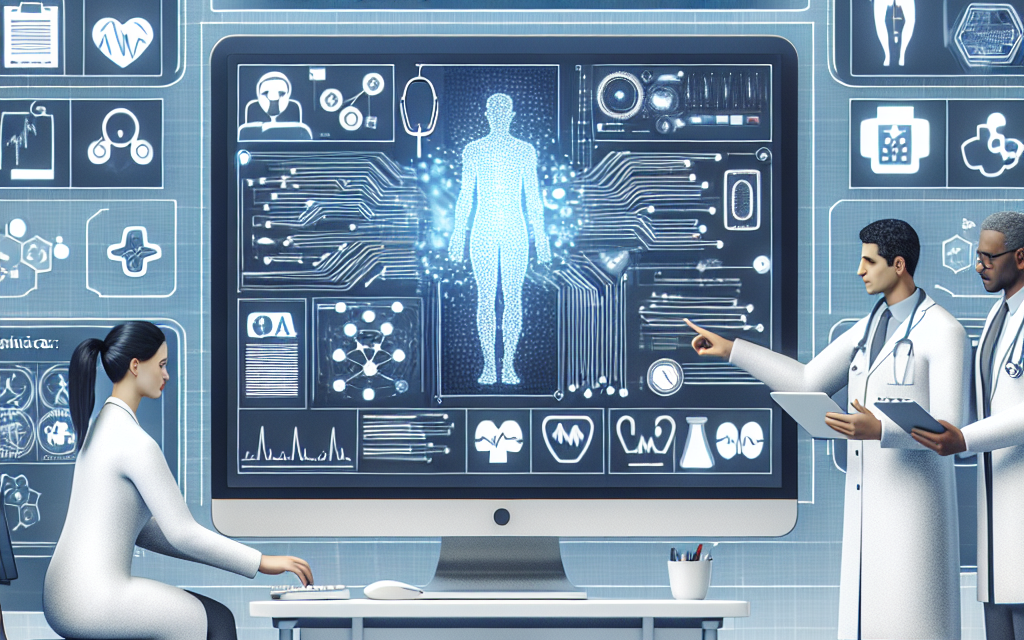Mayo Clinic Enhances AI Documentation Collaboration with Abridge
The integration of artificial intelligence (AI) in healthcare has revolutionized the way medical professionals document patient interactions, manage records, and enhance patient care. One of the most significant advancements in this domain is the collaboration between the Mayo Clinic and Abridge, a company specializing in AI-driven documentation solutions. This partnership aims to streamline clinical documentation, improve patient engagement, and ultimately enhance the quality of care. In this article, we will explore the implications of this collaboration, its impact on healthcare documentation, and the future of AI in medical practice.
1. Understanding the Need for AI in Healthcare Documentation
Healthcare documentation is a critical component of patient care, yet it often presents significant challenges for medical professionals. The traditional methods of documentation can be time-consuming and prone to errors, leading to potential risks in patient safety and care quality. Here are some key reasons why AI is becoming essential in healthcare documentation:
- Time Constraints: Physicians often face overwhelming workloads, leaving them with limited time to document patient interactions thoroughly. AI can automate routine documentation tasks, allowing healthcare providers to focus more on patient care.
- Data Accuracy: Manual documentation is susceptible to human error. AI can enhance the accuracy of records by reducing transcription errors and ensuring that all relevant information is captured.
- Patient Engagement: Effective communication with patients is crucial for their understanding and adherence to treatment plans. AI can facilitate better documentation practices that enhance patient engagement.
- Regulatory Compliance: Healthcare providers must adhere to strict regulations regarding documentation. AI can help ensure compliance by standardizing documentation practices and maintaining accurate records.
- Interoperability: The ability to share information across different healthcare systems is vital for coordinated care. AI can assist in creating standardized documentation that is easily shareable among providers.
Given these challenges, the collaboration between Mayo Clinic and Abridge represents a significant step toward addressing the inefficiencies in healthcare documentation. By leveraging AI technology, they aim to create a more efficient and effective documentation process that benefits both providers and patients.
2. The Role of Abridge in Healthcare Documentation
Abridge is a technology company that specializes in using AI to enhance healthcare documentation. Their platform is designed to automatically capture and summarize patient-provider conversations, transforming them into structured clinical notes. This innovative approach has several advantages:
- Automated Note-Taking: Abridge’s AI technology can transcribe and summarize conversations in real-time, significantly reducing the burden of manual note-taking for healthcare providers.
- Contextual Understanding: The AI is trained to understand medical terminology and context, ensuring that the summaries generated are accurate and relevant to the patient’s care.
- Patient-Centric Approach: Abridge focuses on enhancing patient engagement by providing patients with easy-to-understand summaries of their visits, which can improve adherence to treatment plans.
- Integration with EHR Systems: Abridge’s platform can seamlessly integrate with electronic health record (EHR) systems, ensuring that the documentation is easily accessible and shareable among healthcare providers.
- Data Security: Abridge prioritizes data security and compliance with regulations such as HIPAA, ensuring that patient information is protected throughout the documentation process.
The collaboration with Mayo Clinic allows Abridge to further refine its technology and expand its reach within the healthcare sector. By working with one of the leading healthcare institutions, Abridge can gather valuable insights and feedback to enhance its platform’s capabilities.
3. The Impact of the Collaboration on Clinical Documentation
The partnership between Mayo Clinic and Abridge is poised to transform clinical documentation practices significantly. Here are some of the anticipated impacts:
- Increased Efficiency: By automating the documentation process, healthcare providers can save valuable time that can be redirected toward patient care. This increased efficiency can lead to shorter wait times for patients and improved overall satisfaction.
- Enhanced Quality of Care: With more accurate and comprehensive documentation, healthcare providers can make better-informed decisions regarding patient care. This can lead to improved treatment outcomes and higher quality of care.
- Improved Patient Experience: Patients will benefit from clearer communication and better understanding of their health conditions and treatment plans. Abridge’s summaries can empower patients to take an active role in their healthcare.
- Data-Driven Insights: The integration of AI in documentation can facilitate the collection of valuable data that can be analyzed to identify trends, improve care protocols, and enhance population health management.
- Scalability: As the demand for healthcare services continues to grow, the ability to scale documentation practices efficiently will be crucial. AI-driven solutions can be implemented across various departments and specialties within healthcare organizations.
Overall, the collaboration between Mayo Clinic and Abridge represents a significant advancement in clinical documentation practices, with the potential to improve efficiency, quality of care, and patient engagement.
4. Case Studies and Real-World Applications
To understand the practical implications of the Mayo Clinic and Abridge collaboration, it is essential to examine real-world applications and case studies. Several healthcare organizations have already begun to implement AI-driven documentation solutions, yielding promising results:
- Case Study 1: Mount Sinai Health System – Mount Sinai has integrated AI technology into its documentation processes, resulting in a 30% reduction in time spent on documentation tasks. This has allowed physicians to spend more time with patients, leading to improved patient satisfaction scores.
- Case Study 2: Stanford Health Care – Stanford implemented an AI-driven documentation tool that automatically generates clinical notes from physician-patient conversations. This initiative has led to a 25% increase in documentation accuracy and a significant decrease in clinician burnout related to administrative tasks.
- Case Study 3: Partners HealthCare – Partners HealthCare adopted an AI solution that analyzes patient interactions and generates actionable insights for providers. This has improved care coordination and led to better health outcomes for patients with chronic conditions.
These case studies illustrate the potential benefits of AI-driven documentation solutions in various healthcare settings. The collaboration between Mayo Clinic and Abridge aims to build on these successes and further enhance the capabilities of AI in clinical documentation.
5. The Future of AI in Healthcare Documentation
The future of AI in healthcare documentation looks promising, with several trends and developments on the horizon:
- Continued Advancements in Natural Language Processing (NLP): As NLP technology continues to evolve, AI systems will become even more adept at understanding and processing complex medical language, leading to more accurate documentation.
- Integration with Telehealth: The rise of telehealth has created new opportunities for AI-driven documentation. AI can help capture and summarize virtual visits, ensuring that documentation remains comprehensive regardless of the care delivery method.
- Personalized Patient Engagement: AI can facilitate personalized communication with patients by generating tailored summaries and recommendations based on individual health data, enhancing patient engagement and adherence.
- Expansion of AI Applications: Beyond documentation, AI will likely play a role in other areas of healthcare, such as predictive analytics, decision support, and population health management, further transforming the healthcare landscape.
- Regulatory Developments: As AI becomes more integrated into healthcare, regulatory bodies will need to establish guidelines and standards to ensure the safe and effective use of AI technologies in clinical practice.
The collaboration between Mayo Clinic and Abridge is a significant step toward realizing the full potential of AI in healthcare documentation. By embracing innovative technologies, healthcare organizations can improve efficiency, enhance patient care, and ultimately transform the way healthcare is delivered.
Conclusion
The partnership between Mayo Clinic and Abridge represents a groundbreaking advancement in the field of healthcare documentation. By leveraging AI technology, this collaboration aims to address the challenges faced by healthcare providers in documenting patient interactions while enhancing patient engagement and care quality. The integration of AI-driven solutions has the potential to revolutionize clinical documentation practices, leading to increased efficiency, improved accuracy, and better patient outcomes.
As we look to the future, it is clear that AI will play an increasingly vital role in healthcare. The lessons learned from this collaboration and the successes of other healthcare organizations implementing AI-driven documentation solutions will pave the way for a more efficient, patient-centered healthcare system. By embracing these innovations, healthcare providers can focus on what matters most: delivering high-quality care to their patients.





